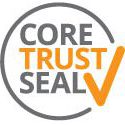National and international funders are increasingly likely to mandate open data and data management policies that call for the long-term storage and accessibility of data.
If we want to be able to share data, we need to store them in a trustworthy data repository. Data created and used by scientists should be managed, curated, and archived in such a way to preserve the initial investment in collecting them. Researchers must be certain that data held in archives remain useful and meaningful into the future. Funding authorities increasingly require continued access to data produced by the projects they fund, and have made this an important element in Data Management Plans. Indeed, some funders now stipulate that the data they fund must be deposited in a trustworthy repository.
Sustainability of repositories raises a number of challenging issues in different areas: organizational, technical, financial, legal, etc. Certification can be an important contribution to ensuring the reliability and durability of data repositories and hence the potential for sharing data over a long period of time. By becoming certified, repositories can demonstrate to both their users and their funders that an independent authority has evaluated them and endorsed their trustworthiness.
Core Certification and its Benefits
Nowadays certification standards are available at different levels, from a core level to extended and formal levels. Even at the core level, certification offers many benefits to a repository and its stakeholders.
Core certification involves a minimally intensive process whereby data repositories supply evidence that they are sustainable and trustworthy. A repository first conducts an internal self-assessment, which is then reviewed by community peers. Such assessments help data communities—producers, repositories, and consumers—to improve the quality and transparency of their processes, and to increase awareness of and compliance with established standards. This community approach guarantees an inclusive atmosphere in which the candidate repository and the reviewers closely interact.
In addition to external benefits, such as building stakeholder confidence, enhancing the reputation of the repository, and demonstrating that the repository is following good practices, core certification provides a number of internal benefits to a repository. Specifically, core certification offers a benchmark for comparison and helps to determine the strengths and weaknesses of a repository.
Completing a self-assessment is very useful even if a repository does not wish to apply for core certification since it enables an appraisal of the repository’s internal procedures, which can be examined with respect to relevant criteria and updated where necessary. The current status of the repository is therefore made apparent, and can also serve for prospective accreditation. By submitting the application for review, the repository’s procedures and documentation are additionally evaluated by external professionals, taking into account the specific aims and context; thus, the repository gains independent insights on how it may evolve and mature to further increase its trustworthiness. Finally, core certification offers a solid foundation for the repository to apply for a higher-level certification in the future.
With these benefits in mind, we encourage repositories to explore the CoreTrustSeal Data Repositories Requirements and seek certification.
